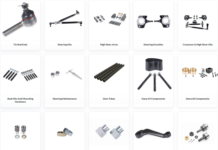Fintech is growing rapidly, and with that growth comes new opportunities for businesses looking to enter the payments space. Whether you’re launching a money transfer platform or a digital wallet service, obtaining the proper regulatory license is a critical step. Payment Institutions (PI) and Electronic Money Institutions (EMI) play a central role in this ecosystem, and both require strict compliance with financial regulations before operating legally.
Understanding the process for getting approved is the first challenge. Regulatory authorities look closely at everything from your company’s structure to its risk management procedures. While the application process can seem intimidating, being organized, thorough, and prepared can dramatically increase your chances of success.
Know the Difference Between PI and EMI
Before applying, it’s important to understand whether your business should pursue a PI license, an EMI license, or both. A Payment Institution license allows a company to provide services like money remittance, direct debits, or card-based payments. These services involve the transfer of funds but do not allow the storage of electronic money.
An EMI license, on the other hand, permits the issuance of electronic money in addition to payment services. This is ideal for businesses operating wallets, prepaid cards, or platforms that allow customers to store value digitally. The scope of activity under an EMI license is broader, and so are the regulatory requirements.
Choosing the right path at the outset prevents complications later. Consulting with legal or financial experts at this stage ensures that your application aligns with your operational model.
Build a Strong Business Plan
A detailed business plan is one of the most important components of a PI or EMI license application. Regulatory bodies want to see that your company has a clear strategy, an understanding of the market, and realistic financial projections. Your plan should describe your services, target customers, revenue streams, and growth model.
Include information about your technology stack, key partners, and risk mitigation strategies. The plan should demonstrate that your company has a long-term vision and the capability to manage both business growth and compliance obligations.
Providing evidence that you’ve studied your competition and understand your niche strengthens your case. The business plan is a window into your company’s reliability and future potential.
Set Up the Right Corporate Structure
Your company’s structure must reflect its operational needs and legal obligations. This includes selecting the correct jurisdiction, choosing qualified directors, and clearly outlining governance procedures. Most regulators require directors and senior management to have a clean background and relevant experience in finance, payments, or technology.
If you’re applying in the European Economic Area or the UK, local presence is often required. This means having a registered office and at least one executive who resides in the jurisdiction. Decision-making should take place within the local office to satisfy regulatory expectations.
Clear reporting lines, a transparent organizational chart, and designated roles for compliance, internal audit, and risk management help demonstrate that your business is ready to operate responsibly.
Prepare a Robust Compliance and Risk Management Framework
One of the main concerns of regulators is the protection of customer funds and the prevention of financial crime. A strong compliance program is crucial. You’ll need to provide documentation outlining how your company plans to comply with Anti-Money Laundering (AML) rules, Know Your Customer (KYC) procedures, and data protection laws.
Risk management is another focus. Regulators will review how you identify, assess, and mitigate operational, legal, and financial risks. This includes having secure IT systems, clearly defined internal controls, and a plan for responding to breaches or fraud.
Even if your company is still in the early stages, having these frameworks in place signals that you take your obligations seriously. Failing to provide sufficient detail in this area is a common reason for application delays or rejections.
Work With Experienced Advisors
Navigating the application process on your own can be overwhelming. Legal advisors, compliance consultants, and regulatory specialists can guide you through each step and help you prepare your materials properly. This reduces the risk of mistakes and shortens the approval timeline.
Working with someone who understands local regulatory expectations increases your chances of approval. If you are applying for a PSP licence in a competitive region, expert support can make your application stand out. These advisors can also help design your compliance program, choose the right technology vendors, and ensure that your governance structure meets the required standard.
Submit Complete and Accurate Documentation
The licensing process involves submitting a wide range of documents. These typically include corporate records, business plans, financial projections, background checks, and descriptions of compliance policies. Every jurisdiction has its own specific requirements, so it’s important to check the regulator’s checklist and follow it closely.
Any inconsistencies or missing details can result in additional questions and extended timelines. It’s better to spend time on accuracy from the beginning than to go back and forth with the regulator later.
Once submitted, the application may take several months to review. Some jurisdictions allow applicants to operate under a temporary registration while the full license is processed, but this varies.
Applying for a PI or EMI license is a detailed and often challenging process. With the right preparation, clear documentation, and a solid operational framework, your business can move through it with confidence. Regulatory approval opens the door to growth, credibility, and the ability to offer trusted financial services across borders. Start with a clear vision and build a structure that supports long-term success.






























